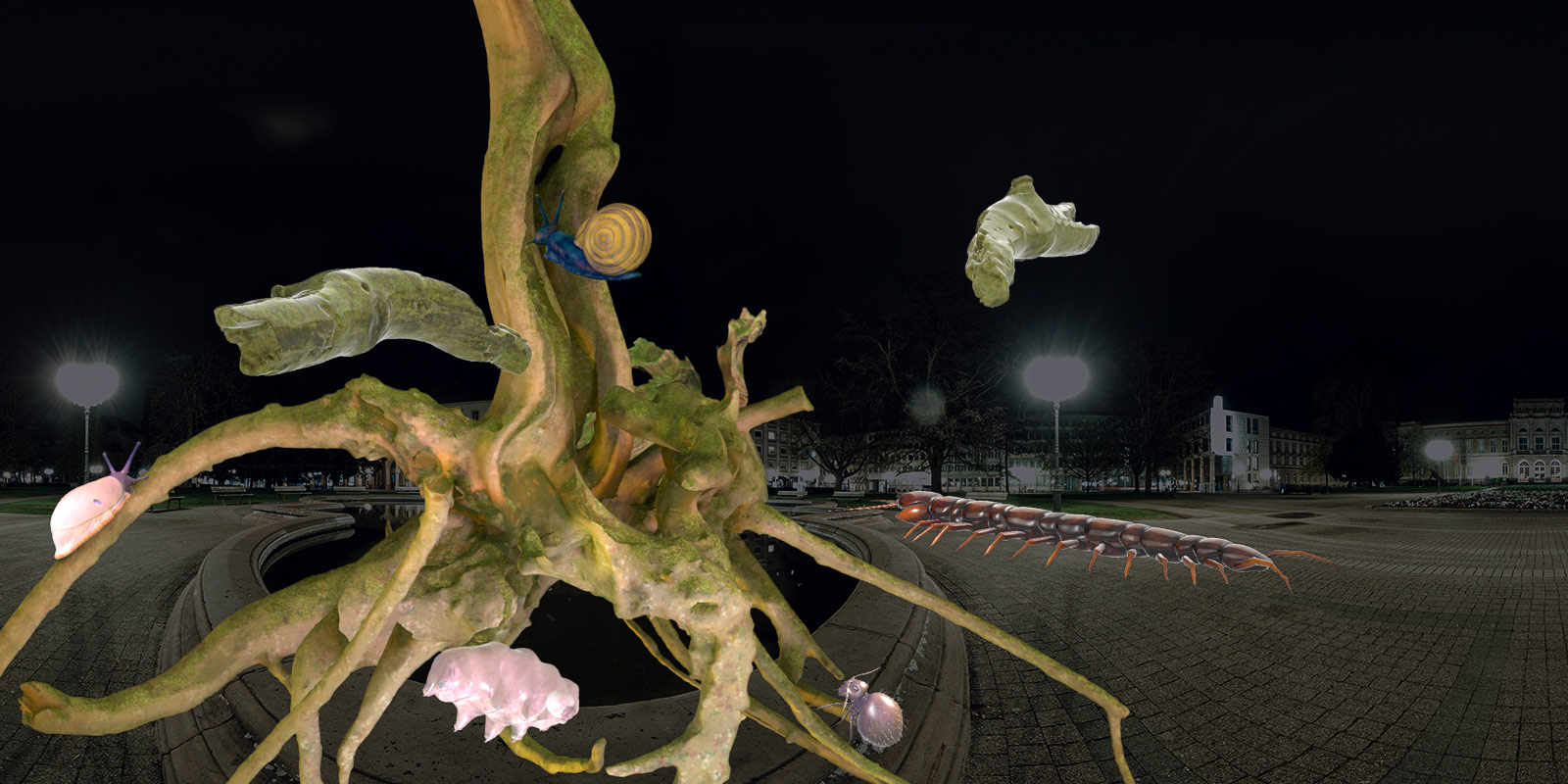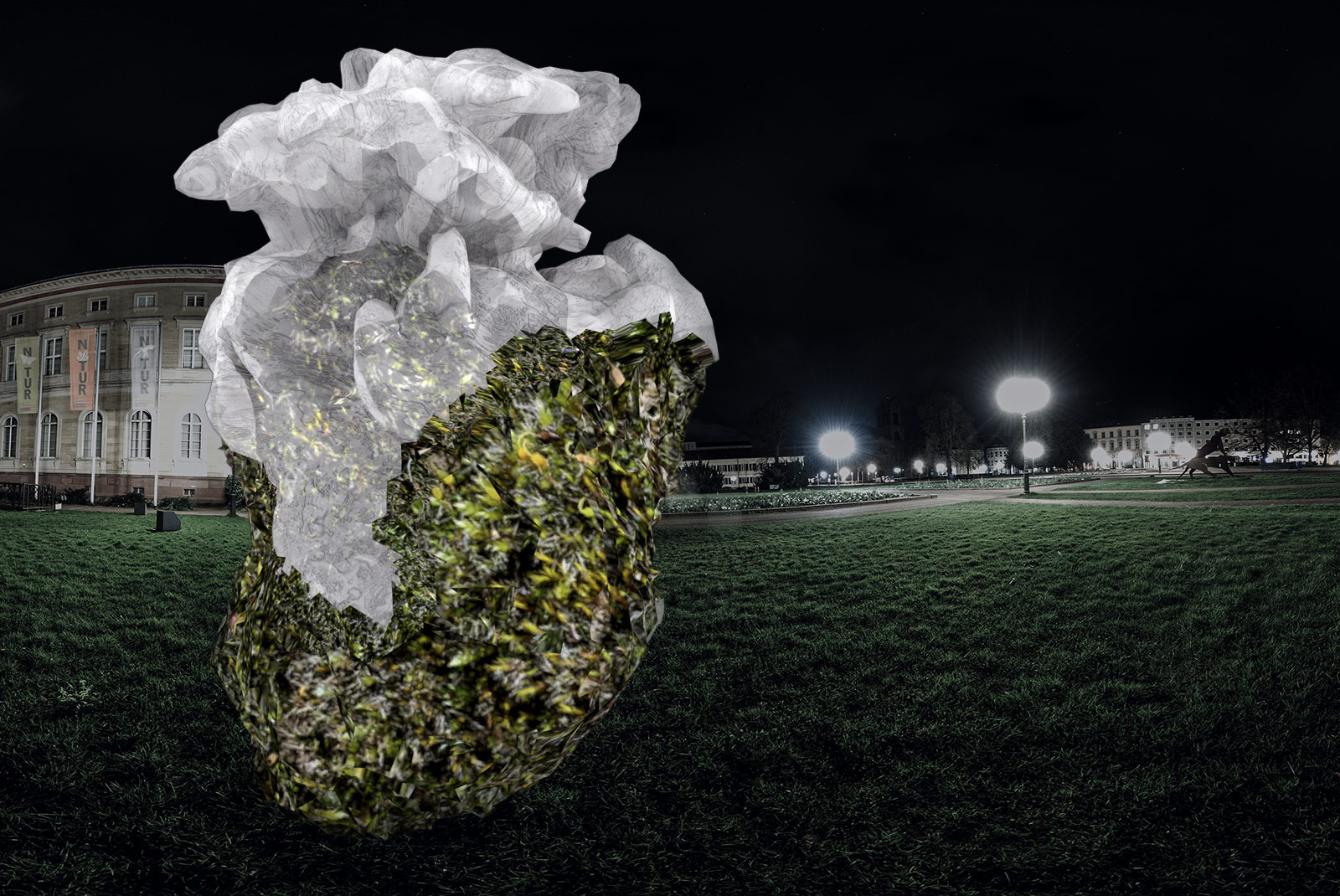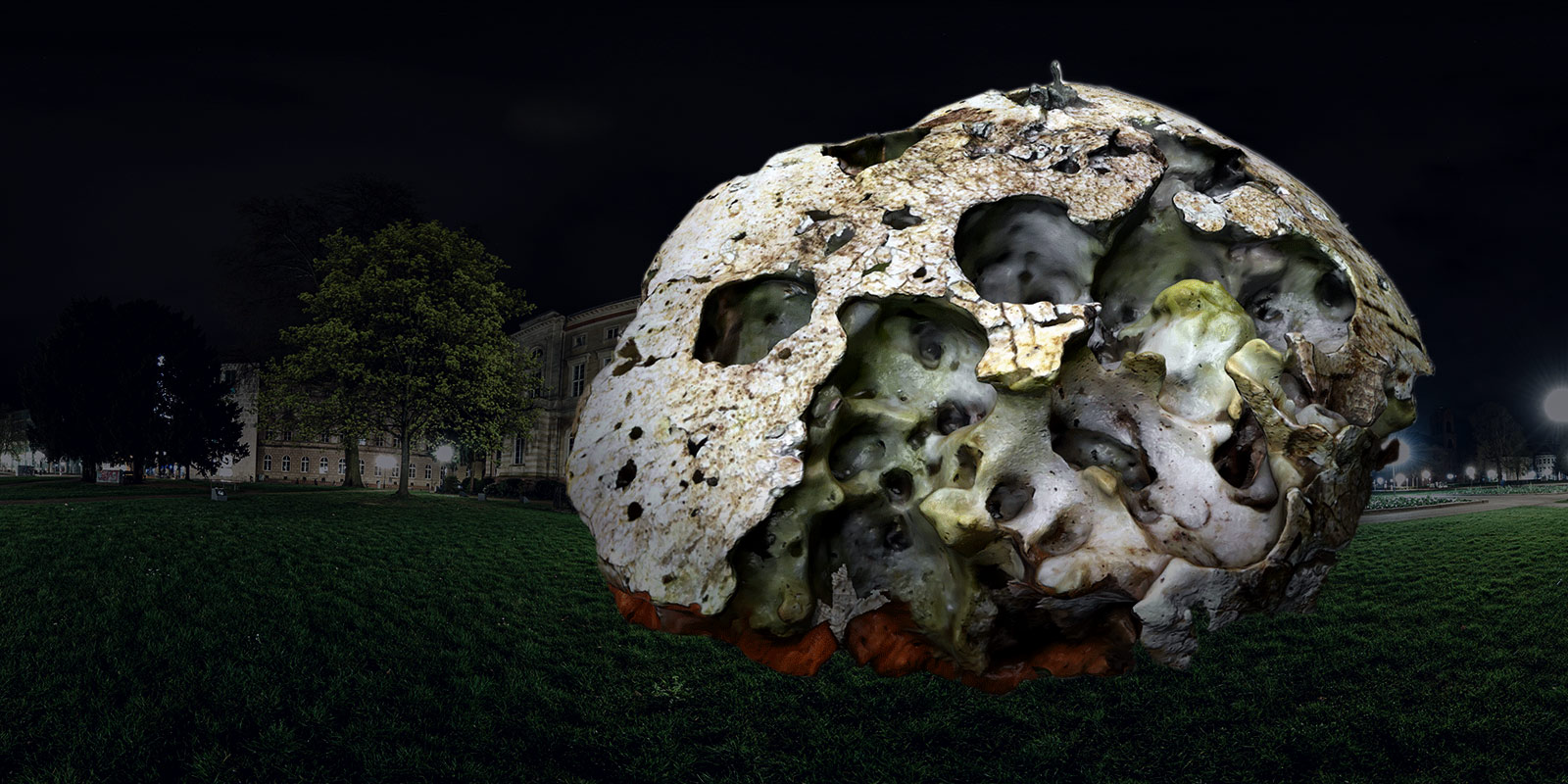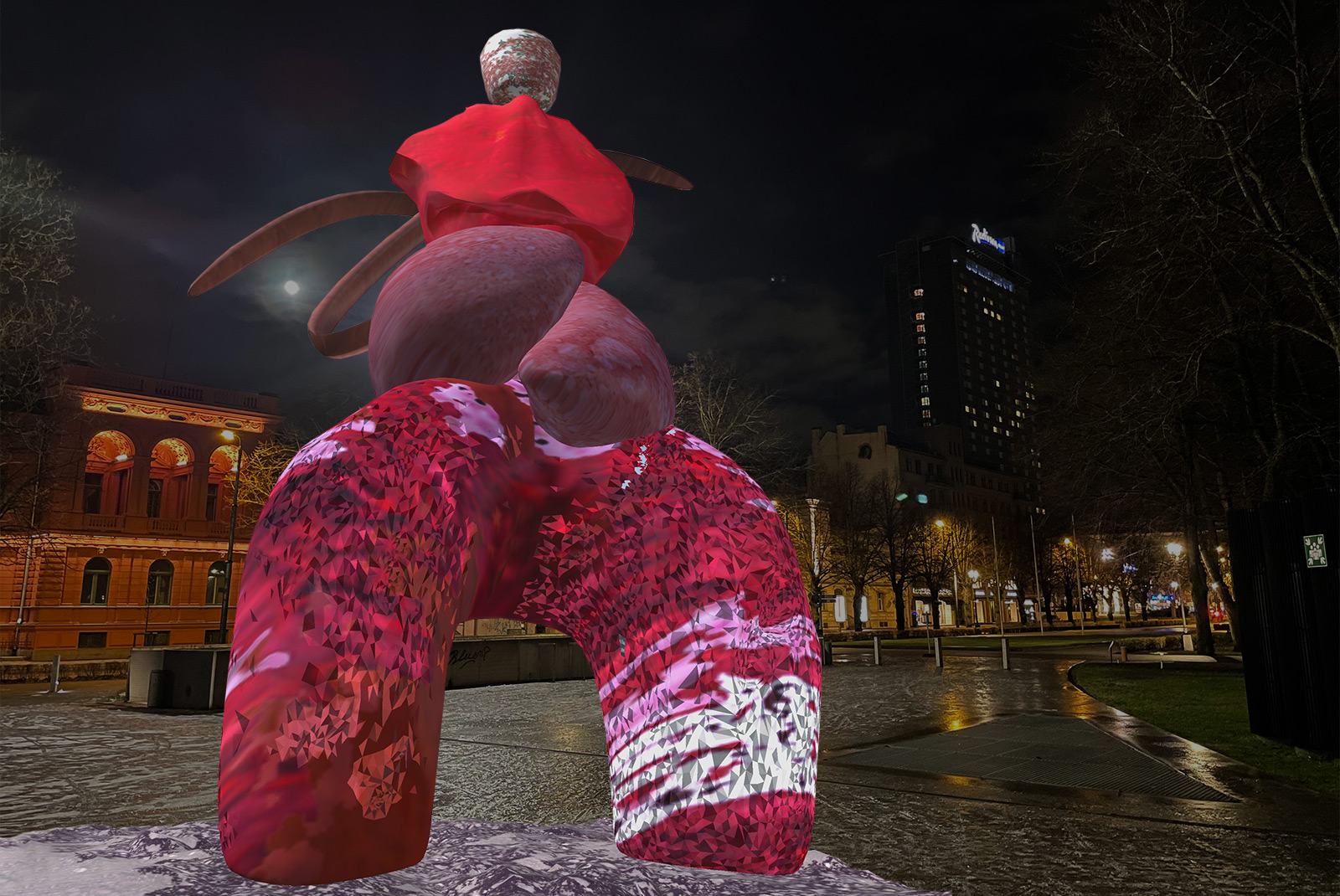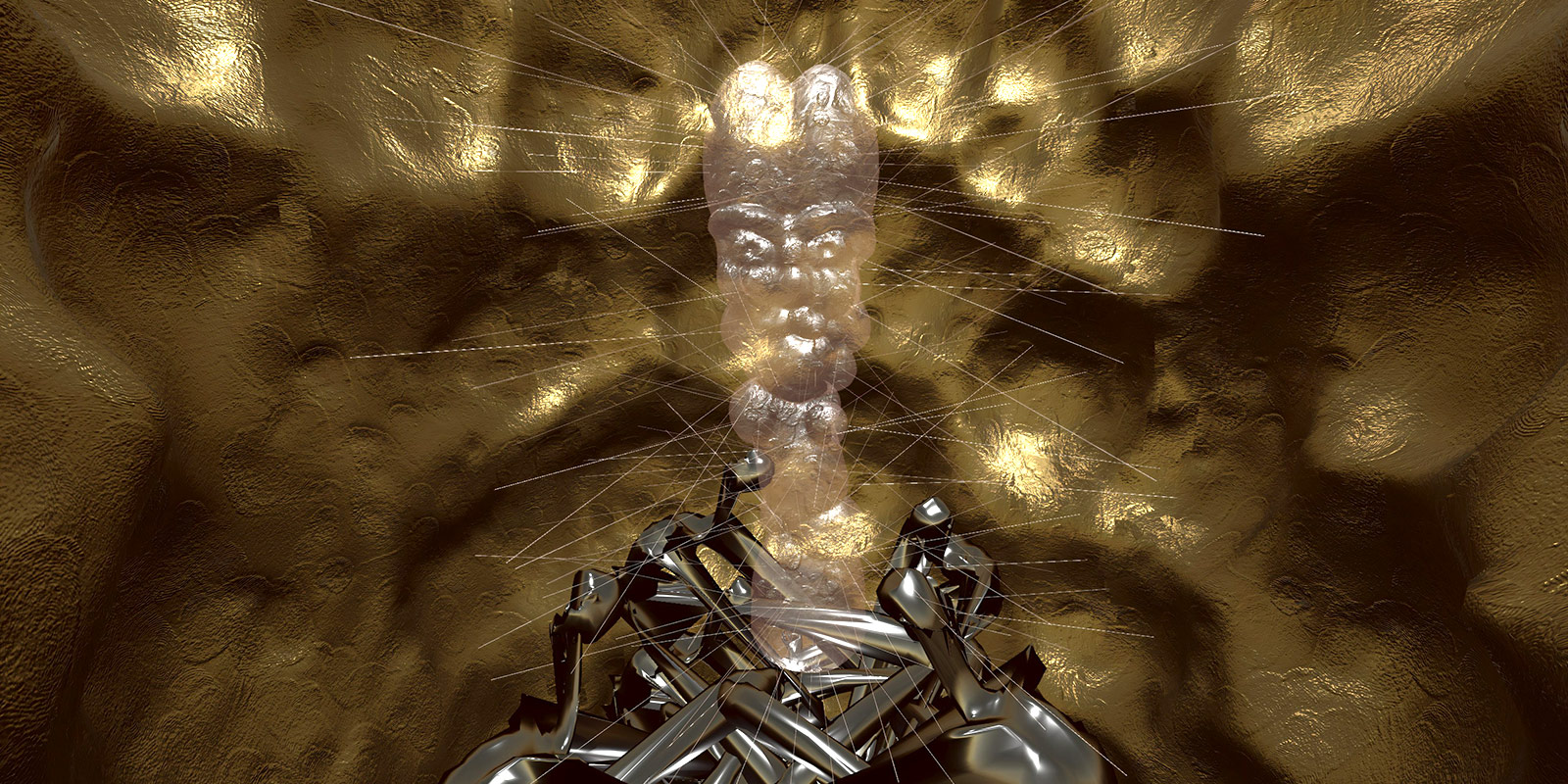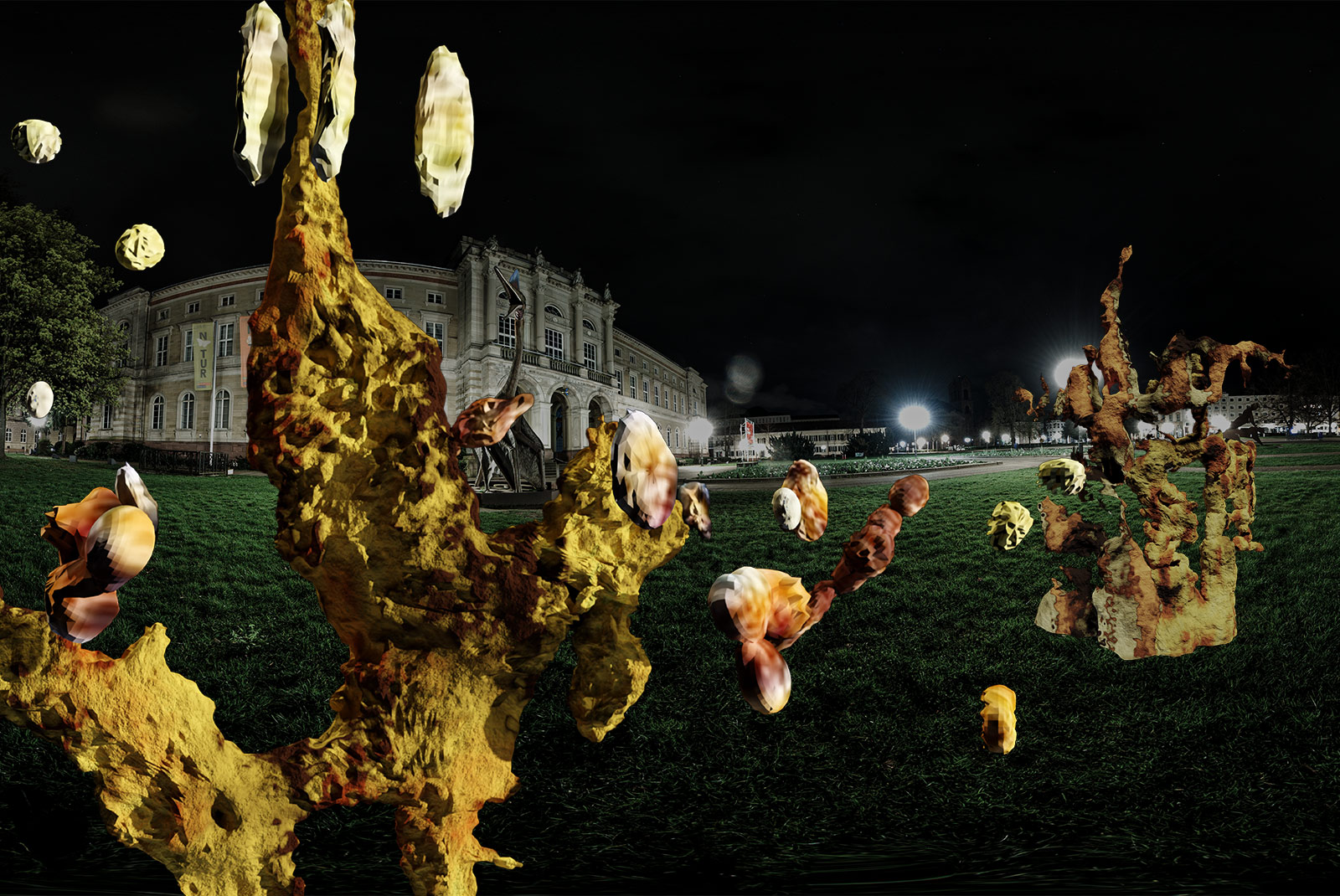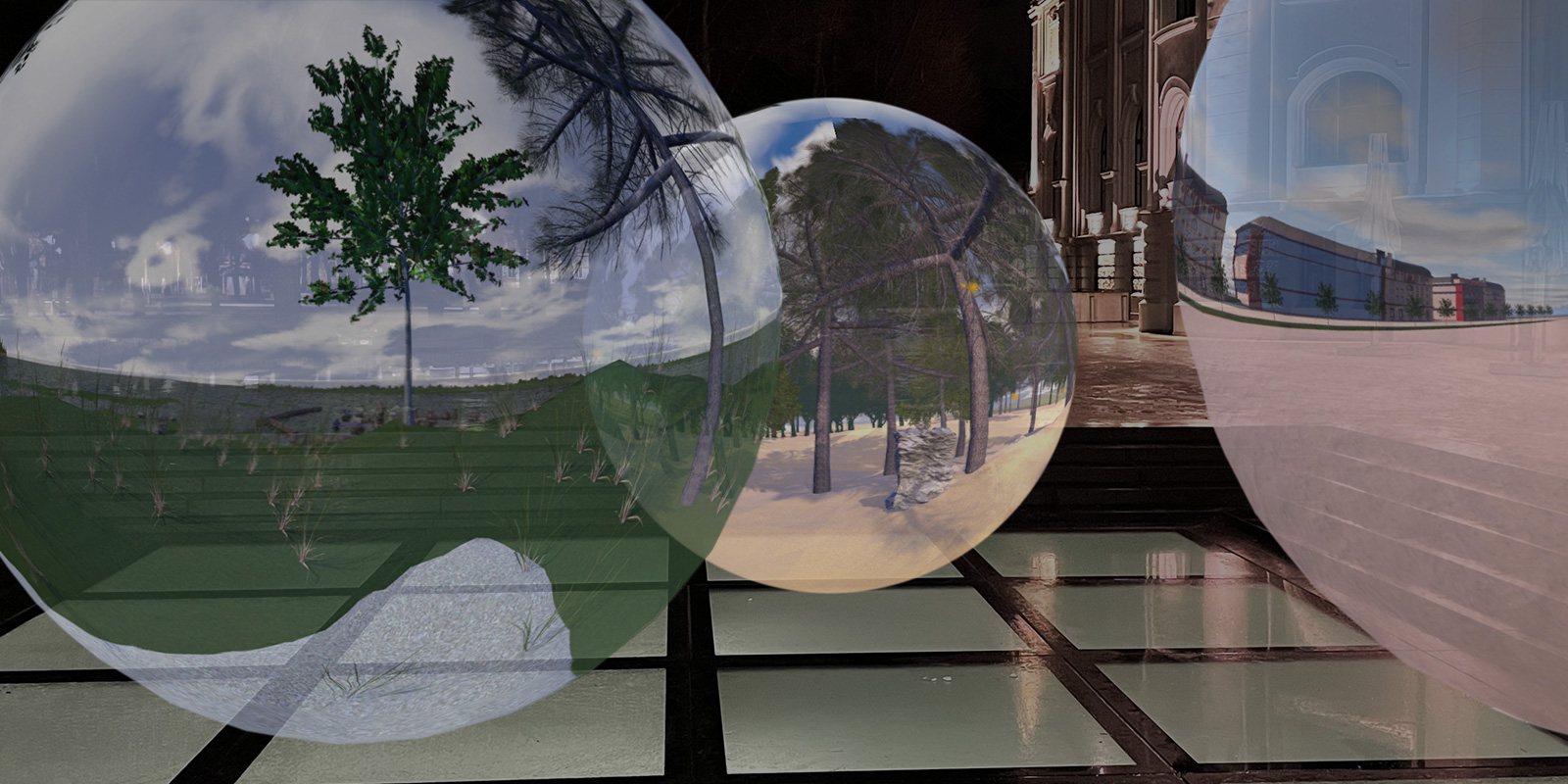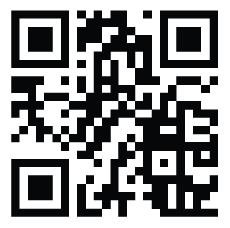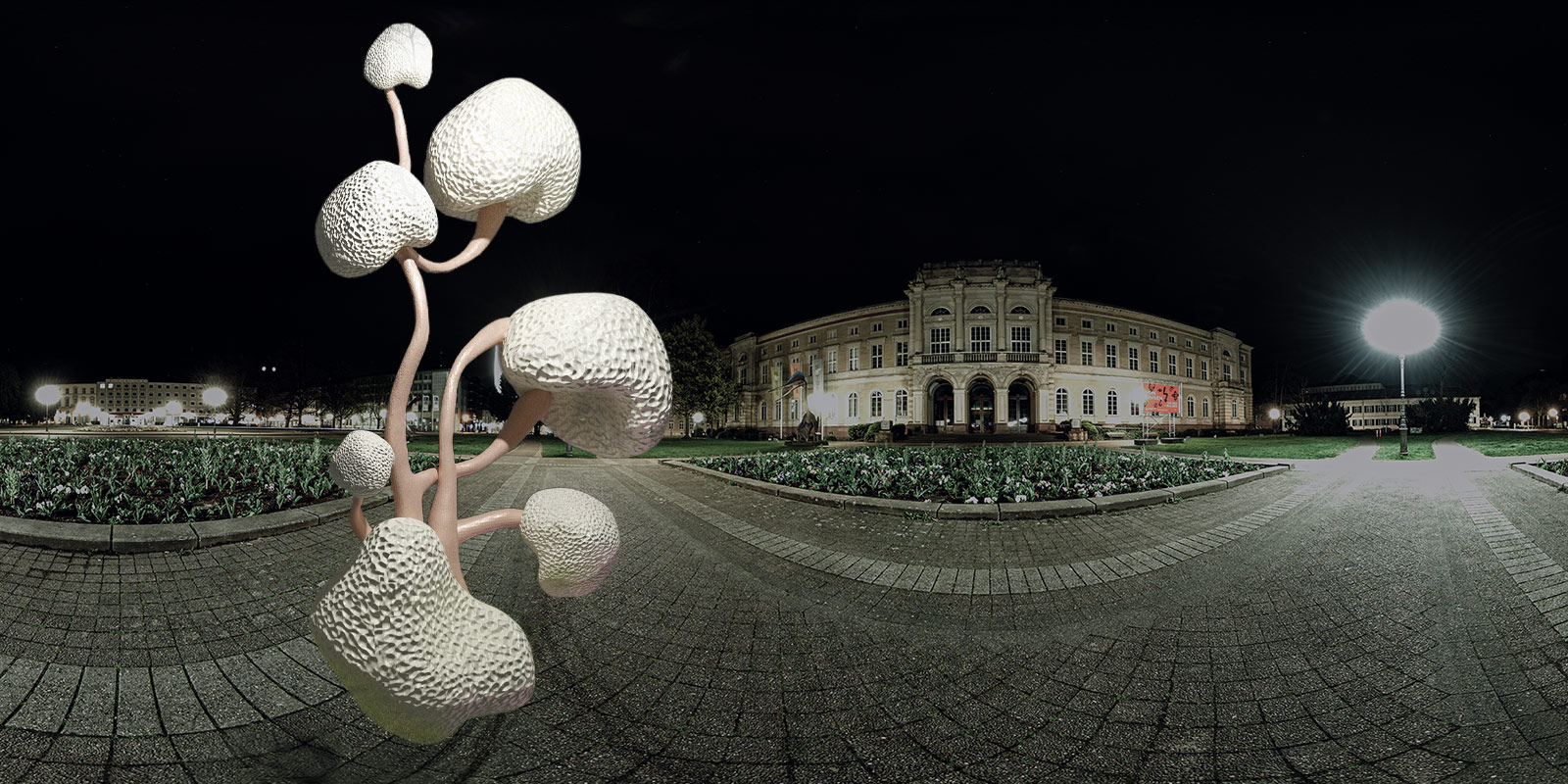
Vegetable Kingdom, Vegetable Anarchy
Anna Manankina
The AI-generated plant species is a speculative artwork created using images from the Museum of Natural History. The new plant is a result of a continuous mutation, which has evolved to a stage after which humans aren’t needed anymore as any plant can take the shape of a human.
